

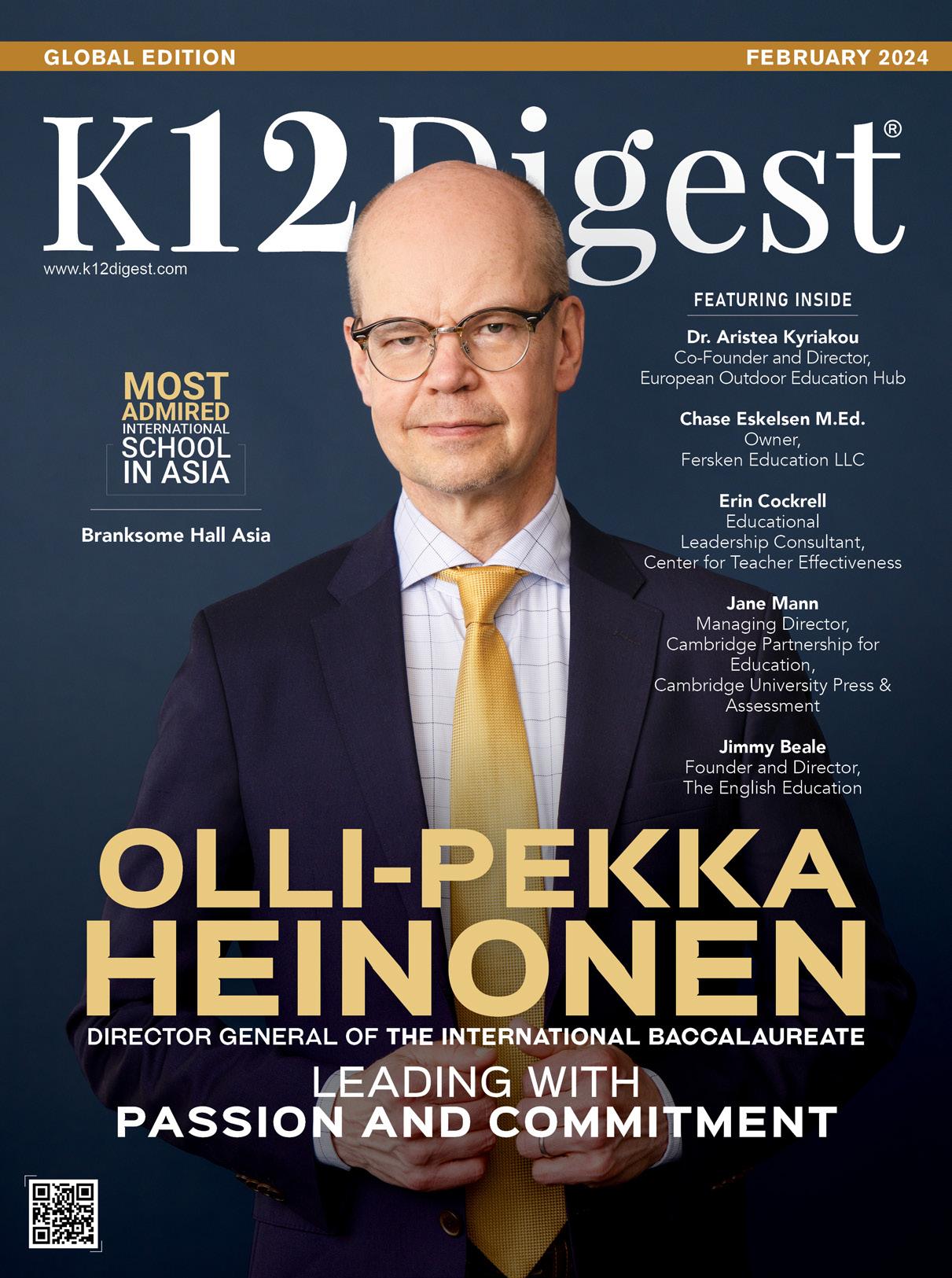


February 2024 Vol
Managing Editor
Sarath Shyam
Consultant Editors
Dr. John Andrews
Emma James
Andrew Scott
Naomi Wilson
Stanly Lui
Joseph Alex
Art & Design
Charlie Jameson
Jennifer Anderson
Alice Smith
Sales & Marketing Enquiry admin@K12digest.com
Monica Davis
Anna Elza
International Partnerships
admin@K12digest.com
Americas
16192 Coastal Highway, Lewes, DE 19958, USA
Europe
27, Old Gloucester Street, London, WC1N 3AX, UK
Middle East & Africa
P.O. Box 48299, Dubai Silicon Oasis, Dubai, UAE
Asia-Pacific
Ramanashree Arcade, 18 MG Road, Bangalore – 560001, India
Free Subscription


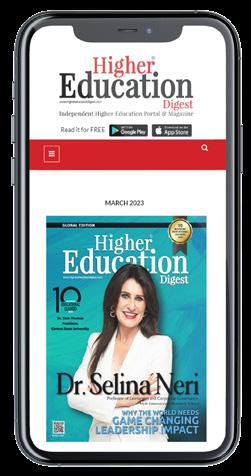
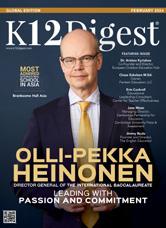
K12 Digest is a digital magazine published by Connecta Innovation Private Limited. All rights reserved. The opinions expressed in the content and pictures provided are those of the authors. They do not purport to reflect the opinions or views of the Connecta Innovation Private Limited or any of its members and we do not assume any responsibility. The publisher does not assume any responsibility for the advertisements, its content, pictures, and all representation of warranties made in such advertisements are those of the advertisers and not of the publisher. K12 Digest is a Free Subscription digital magazine strictly not for sale and has to be strictly for internal private use only. Publisher does not assume any responsibility arising out of anyone printing copy of this digital magazine in any format and in any country and all matters related to that.
K12 Digest February 2024 4
FEBRUARY 2024
- 5 Issue - 3
Charting the Course: Transformations in K12 Education
The International Baccalaureate (IB) is a globally renowned education system that is known for its rigorous academic standards, emphasis on critical thinking, and commitment to creating well-rounded individuals. The IB was founded in 1968 and offers programs designed for students aged 3 to 19, with a focus on developing intellectual, personal, emotional, and social skills that are essential for success in a fast-changing world.
In this issue of K12 Digest Magazine, we explore the dynamic landscape of K12 education and examine the transformative trends and visionary leaders shaping the future of learning. Our cover story features an interview with OlliPekka Heinonen, Director General of the International Baccalaureate (IB), who shares profound insights into the evolution of K12 education over the past decade and its trajectory ahead. Heinonen’s perspective provides invaluable guidance for educators and stakeholders navigating the complexities of modern education. He discusses the unique attributes of the IB curriculum, significant career milestones, and pearls of wisdom.
We also highlight Branksome Hall Asia, which is recognized as the Most Admired International School in Asia. Branksome Hall Asia is located on Jeju Island, and since its inception in 2012, it has been committed to fostering a globally-minded community where academic rigor and student empowerment take center stage. Branksome Hall Asia draws inspiration from its esteemed counterpart, Branksome Hall Canada. Through its dedication to nurturing future leaders and promoting cultural diversity, Branksome Hall Asia exemplifies the transformative impact of international education.
As we celebrate the achievements of visionary leaders like Olli-Pekka Heinonen and institutions like Branksome Hall Asia, we are reminded of the profound influence of education in shaping the minds and hearts of the next generation. In an ever-changing world, the pursuit of knowledge, innovation, and global citizenship remains paramount. It is through collaborative efforts and unwavering dedication that we continue to propel the future of K12 education forward. Enjoy Reading.
 Sarath Shyam
Sarath Shyam
K12 Digest February 2024 5
MANAGING EDITOR’S NOTE



K12 Digest February 2024 6 COVER STORY
-
GENERAL OF THE INTERNATIONAL BACCALAUREATE
PASSION AND COMMITMENT 10 CONTENTS CONTENTS
OLLI
PEKKA HEINONEN DIRECTOR
LEADING WITH
MOST ADMIRED INTERNATIONAL SCHOOL IN ASIA
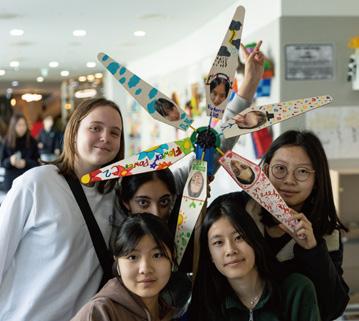
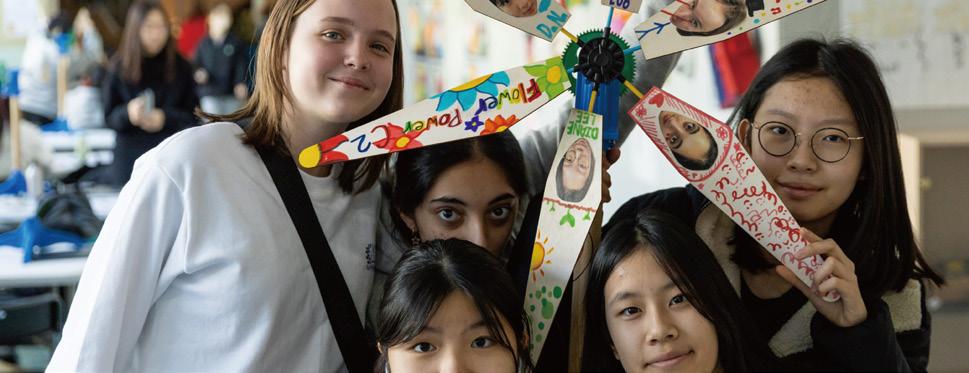
32
BRANKSOME HALL ASIA
Cultivating Global Leaders on Jeju Island
LEADER IN FOCUS

22
REINVENTING CLASSROOMS: OPTIMIZING CURRICULA AND CLASSROOM MANAGEMENT
Erin Cockrell, Educational Leadership Consultant, Center for Teacher Effectiveness
LEADING CHARGE IN THE EDUCATION TRANSFORMATION SECTOR
Jane Mann, Managing Director, Cambridge Partnership for Education, Cambridge University Press & Assessment
BEST PRACTISES
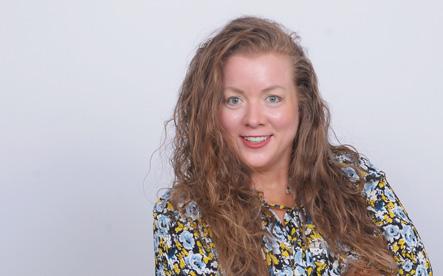
52
K12 Digest February 2024 7
CONTENTS CONTENTS
SCHOOLS - WHAT SHOULD YOU BE ASKING OF EDUCATIONAL CONSULTANTS WHO REPRESENT INTERNATIONAL APPLICANTS?
Jimmy Beale, Founder and Director, The English Education
MENTOR’S MANTRA
60

INDUSTRY PERSPECTIVE

44
THE RISE OF ONLINE LEARNING: EXPLORING THE POTENTIAL OF VIRTUAL EDUCATION
Chase Eskelsen M.Ed., Owner, Fersken Education LLC
GREECE’S OUTDOOR EDUCATION DEBUT: A PILOT PROGRAM PASSES WITH FLYING COLORS
Dr. Aristea Kyriakou, Co-Founder and Director, European Outdoor Education Hub
64

K12 Digest February 2024 8
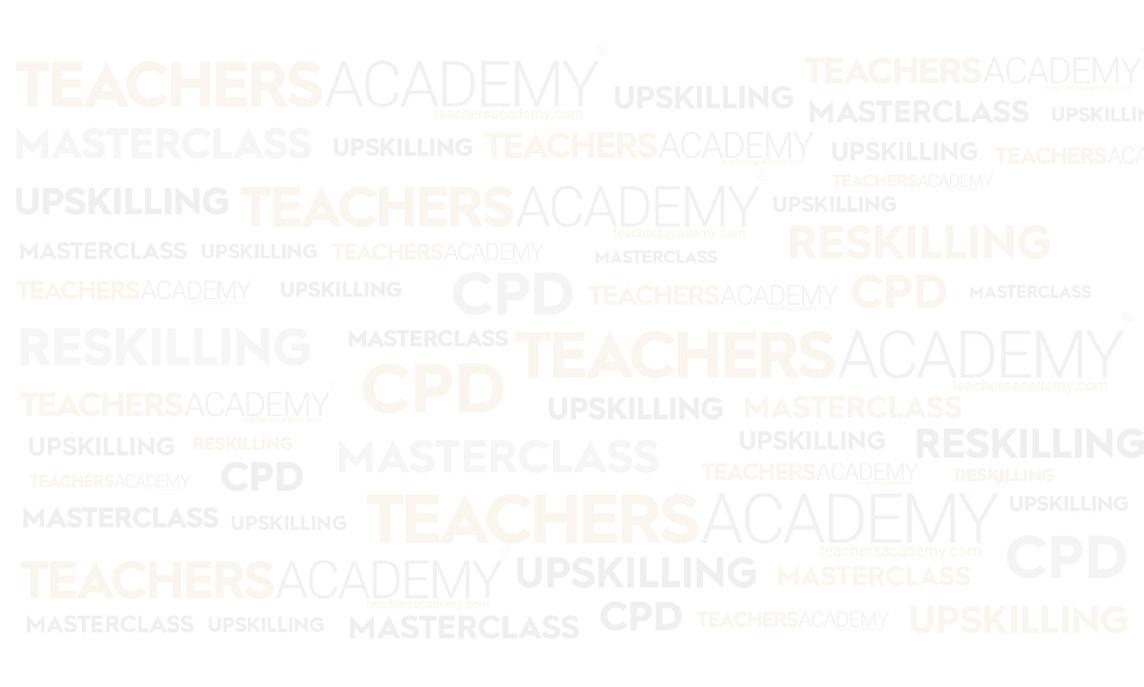
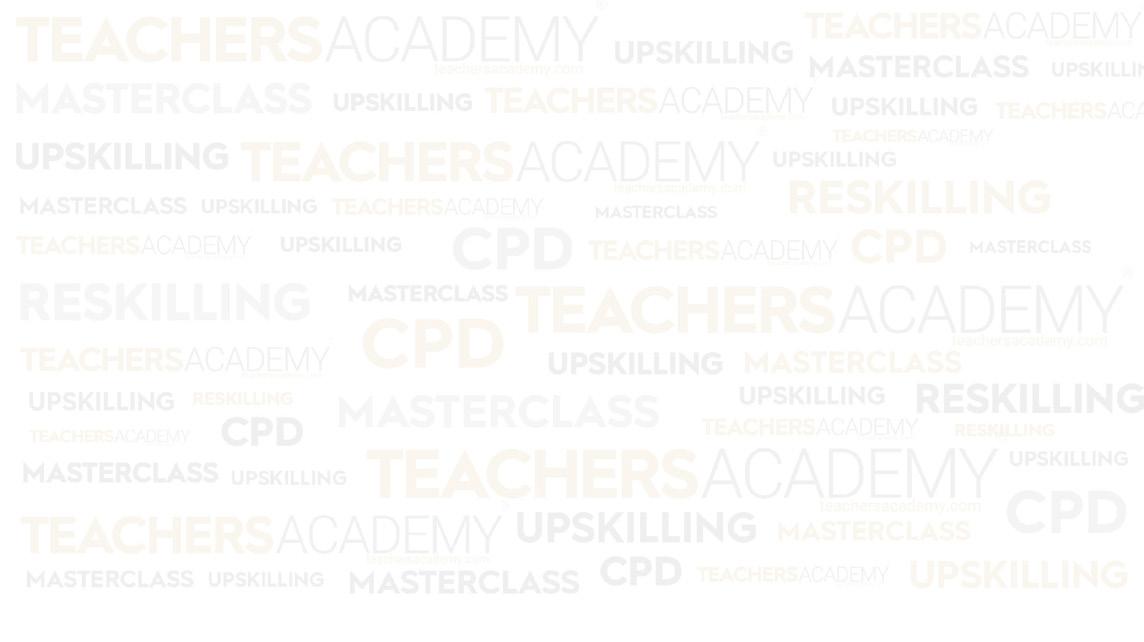

Amazing Opportunity for Teachers and School Leaders to enhance their knowledge through FREE Teachers Academy masterclasses from international education experts !!! For more details and registration www.teachersacademy.com
OLLI-PEKKA HEINONEN
DIRECTOR GENERAL OF THE INTERNATIONAL BACCALAUREATE
LEADING WITH PASSION AND COMMITMENT
Olli-Pekka Heinonen became Director General of the IB in 2021. Previously, from 2017, he was Director General of the Finnish National Agency for Education. Mr. Heinonen was Minister of Education and Science (1994-1999); Minister of Transport and Communication (1999-2002) and a Member of Parliament (1995-2002) in Finland. From 2002-2012, he was Director of Yle, the Finnish national public broadcasting company, before joining the Finnish Prime Minister’s Office as State Secretary, and subsequently State Secretary in the Ministry of Education and Culture, Ministry of Internal Affairs, Ministry of Foreign Trade and Development and Ministry of Finance of Finland. Recently, in an exclusive interview with K12 Digest, Mr. Heinonen shared his insights on how the K12 education landscape has transformed over the last decade and its future, what makes the International Baccalaureate unique, significant career milestones, pearls of wisdom, and much more. The following excerpts are taken from the interview.



COVER STORY


How has the K12 education landscape transformed over the last decade and where is it heading now?
In recent years, K12 education has navigated numerous challenges, particularly during COVID-19, where educators worldwide were confronted with a wide range of areas where old paradigms were challenged and questioned. Amongst the many challenges resulting from the pandemic has been the accelerated speed and character of change.
Technology is a rapidly expanding and increasingly essential piece of student learning, which experienced unprecedented acceleration in recent years as many schools around the world shifted to digital learning platforms.
I anticipate that globally we will see more diversified models of K12 education and schooling. Many countries and systems are struggling with learning outcomes, and the traditional ways of schooling don’t achieve educational equity and inclusion as
they are expected to deliver or as they have done before. Online learning, different pedagogical approaches, schools as community learning hubs, strict centrally controlled curricula, homeschooling etc., are methods that diversify the extended way of schooling which has its roots in the industrial era.
We are discovering that interdisciplinary and advanced disciplinary competencies are required to cope with the uncertainties of the pandemic and our rapidly changing world. In this age of artificial intelligence, we still must rely on humans to create ethically sustainable solutions, to understand what is relevant and valuable to society.
Wellbeing is also becoming more central, not just as a condition during the school years, but as a competence for human flourishing, including for future generations and the planet.
The IB (International Baccalaureate) recognizes that the world is changing,
The IB is fully committed to not only continuously improve the support and services we offer, but to grow purposefully, increase access to high-quality education, and plan for future generations with innovative initiatives that will transform the landscape of education
K12 Digest February 2024 12

and that education must adapt to prepare the learners of today for the future. Our purpose is to help young people flourish by supporting the educators who equip them with the knowledge and skills to do so, especially now - in an ever-changing world with complex challenges. The IB is fully committed to not only continuously improve the support and services we offer, but to grow purposefully, increase access to high-quality education, and plan for future generations with innovative initiatives that will transform the landscape of education.
What are the challenges in the current field of education, and how and what can we do to improve?
To thrive, today’s students must prepare to enter a dynamic and challenging world that requires transferable and adaptable skills. To compete, today’s nations must build an entrepreneurial generation of disruptors, equipped to reinvent, reimagine and redefine not just the nature of work but entire industries and societies. Education systems must be able to demonstrate that they are part of the solution in our societies, not part of the problem. The transformative power of education requires that there is a direct motivational link between the learner and the world, and
K12 Digest February 2024 13

that education is not developed as a separate silo but as a vital means to create a better and more peaceful world.
With an unpredictable future, education is our greatest source of hope. Only by developing and empowering our youth can we equip them to become the thinkers, creators and engineers of tomorrow, ready to solve society’s most pressing challenges and build a better, more sustainable world for us all. To do this, students need an education for life. Not for one career, but for many. Not for one culture, but for all. And, most importantly, for a world where a qualification is not the end state. It is the beginning.
Critical thinking, curiosity about the world, creativity, and the ability to formulate a hypothesis around a perceived problem and then use a research process to design a solution are irrefutably top-of-the-chart skills for our students. We need to continue to work as an international community to advocate for the whole of the educational experience, not just the test scores of high-stakes exams.
We quite often think about what the building blocks of a functioning education system are: professional development for educators, curriculum, assessments, the relationship between school and home. But I think what is most essential is how these are interconnected. All these components must be considered and supported, coherently and consistently, to create
K12 Digest February 2024 14
The IB is intentionally designed to be flexible, allowing students, teachers, and community leaders to draw from best practices in education tailored to their own local culture
educational settings that enable students’ holistic development.
Can you please give us an overview of the IB education? What are its key strengths and what makes it unique? The International Baccalaureate is more than an education, it is a lifelong opportunity.
The IB continuum comprises four distinct programmes: the Primary Years Programme (ages 3-12), the Middle Years Programme (ages 11-16), the Diploma Programme (ages 16-19), and a Career-related Programme designed for the same age group. These programmes offer a flexible and adaptable curriculum that educators can tailor to meet the specific needs of their students and communities.
By embracing an inquiry-based approach, the IB fosters curiosity, critical thinking, and problem-solving skills in students. This approach encourages students to ask questions, explore diverse perspectives, and actively engage in their own learning process. It aligns with the evidence-based principles and objectives set forth by state and local education authorities across the world, enabling students to thrive while meeting local standards and objectives.
The IB’s methodology moves beyond standardized testing to build skills like research, critical thinking and self-management. This develops a sense of confidence, resilience and purpose that students can rely on throughout their educational journey and beyond. IB learning methodologies give students a competitive edge, helping them to enter universities and careers of their choice and perform better when they do.
The IB is intentionally designed to be flexible, allowing students, teachers, and
K12 Digest February 2024 15
community leaders to draw from best practices in education tailored to their own local culture. This approach transforms learning into a realworld experience, emphasizing analysis and relevance over memorization of facts or dates.
What are the four foundational and interrelated elements that are central to all IB programmes?
Together with the IB community, IB students and graduates’ pride themselves on making a positive difference in the world. Through inquiry-based learning, an IB education inspires young people to become independent lifelong learners— fostering open and enlightened minds. The IB learner profile is central to IB’s mission: it describes a broad range of human capacities that go beyond academic success –developing globally-minded and empathetic people who recognize their common humanity and shared guardianship of the planet.
How are students encouraged to become active, responsible, and globally-minded citizens in an IB programme?
IB programmes foster diversity, curiosity and a positive attitude towards learning, encouraging personal development and academic achievement. Students are challenged to think critically, ask the right questions and think across disciplines, ultimately setting them up for success in higher education and the workforce.
The IB’s curriculum is designed for students from all cultures and backgrounds across the world. This flexible, well-rounded approach to learning gives students the grounding to develop the cognitive, social and emotional skills they need to thrive.

K12 Digest February 2024 16
The IB believes that AI technology will become part of our everyday lives, and therefore, we need to adapt and transform educational programmes and assessment practices so students can use these new AI tools ethically and effectively
The IB is also renowned for its globalminded atmosphere, where students can master a second language and develop nuanced cultural awareness, helping them become more open-minded as well as providing the opportunity to live and work in different countries. The IB centres empathy in its instructional approach, giving students opportunities to get involved in their local community through personal projects and service. Students build the creativity and
confidence to reimagine solutions, or devise better ones, to make the world a better place.
What are your thoughts on the role of AI in the K12 education system?
The IB is focused on exploring the educational opportunities that this software has created and is now trying to imagine what a world in which artificial intelligence (AI) software is routinely used will look like.
K12 Digest February 2024 17
The IB believes that AI technology will become part of our everyday lives, and therefore, we need to adapt and transform educational programmes and assessment practices so students can use these new AI tools ethically and effectively.
We encourage educators to engage with this new technology as part of teaching and learning. The IB curricular framework highly emphasises exploring different ways of knowing and diverse perspectives. One of the DP (Diploma Programme) core subjects, Theory of Knowledge (TOK), deals with this explicitly as a required course which then supports learning and teaching in other subjects.
How would you describe your leadership style?
For me, leadership is a quality of an organization, not a single role. My role is to create the conditions that enable leadership to be distributed as widely as possible throughout the
organization. Building trust and psychological safety, clarifying the meaning and purpose of work, and creating a structure that enables interactions inside the organization and with schools and other stakeholders for us to be able to fulfill our purpose, are the central elements of my leadership.
None of us are able to achieve success without some help along the way. Is there a particular person who you are grateful towards who helped get you to where you are?
Life itself has given me so many opportunities for learning and growing. And any hard times and difficulties I have faced have molded me the most to become the person I am today. More than any individual person, I am grateful to the communities I have had a chance to be part of. Playing varying compositions of music with different bands has taught me so much about human interaction, creativity, leadership and how to
For me, leadership is a quality of an organization, not a single role. My role is to create the conditions that enable leadership to be distributed as widely as possible throughout the organization
K12 Digest February 2024 18

achieve something beautiful and valuable by working together.
What are some of your greatest achievements in your career till date?
What makes them special?
I became a Minister in the Finnish government at the age of 29, so I experienced power quite early in my career. The word “minister” derives from the Latin word meaning “servant”. The use of power to help others to reach their full potential motivates me highly. Being able to create various leadership teams in different sectors, to be a mentor and tutor to a lot of
talented people and to give numerous lectures and speeches about human development, leadership, changemaking and systems learning, are the achievements I value more than any substantial decisions or changes I have been responsible for during my career.
What are the most important recommendations you would like to drive home for administrators and leaders at other K12 schools regarding the integration of IB curriculum?
The IB is a non-profit foundation, so we are driven by our mission of making a better and
K12 Digest February 2024 19
The IB is a non-profit foundation, so we are driven by our mission of making a better and more peaceful world by supporting students, who are our ultimate beneficiaries
more peaceful world by supporting students, who are our ultimate beneficiaries. Therefore, the IB works closely with schools, governments and international organisations to empower and equip students to be forces for change and innovation in their communities, building partnerships and rigorous programmes that encourage students to become active, compassionate and lifelong learners.
The IB embraces differences so schools can flexibly adapt a curriculum that reflects their community and culture. Since programmes encourage collaboration, innovation and
solving real-life problems, schools are able to make a real difference in their communities. Global-mindedness is also central to the continuum of IB programmes, giving students a nuanced and multi-faceted outlook and understanding.
The IB offers schools support and advice tailored to their specific needs and works closely with administrators and educators to implement all programmes. We also support schools’ development plans to address current challenges and achieve their long-term ambitions to deliver quality education.
K12 Digest February 2024 20

Leading Charge in the Education Transformation Sector
Jane Mann, Managing Director, Cambridge Partnership for Education, Cambridge University Press & Assessment
Jane Mann has worked in education publishing and reform for more than 20 years. As Managing Director of Cambridge Partnership for Education, Jane leads a team supporting governments and organisations in over 25 countries with programmes of transformation across their education system, from needs analysis to publishing to assessment to teacher professional development. To achieve ambitious goals, Jane brings together experts from across Cambridge University and its global networks.
In addition to her leadership role, Jane is a member of the Centre for the Study of Global Human Movement at Cambridge University and a member of the British Educational Suppliers Association (BESA) Executive Council.
Recently, in an exclusive interview with K12 Digest, Jane shared her professional background, current roles and responsibilities, how the K12 education landscape has transformed over the last five years and its future, insights on the importance of female leadership in the field of education, future plans, pearls of wisdom, and much more. The following excerpts are taken from the interview.
Jane, could you please briefly introduce yourself and tell us about your journey, background, and role at Cambridge University Press & Assessment?
I’m Jane Mann, Managing Director of Cambridge Partnership for Education at Cambridge University Press & Assessment, part of Cambridge University. I have worked
in education for more than 20 years, and am an experienced publisher, author, editor and trainer.
In my role at Cambridge, I lead a dedicated team working with ministries of education, government agencies and international development organisations around the world to improve the quality of education systems. Our mission is to transform societies through
K12 Digest February 2024 22
LEADER IN FOCUS
Cambridge Partnership for Education was formed just over three years ago to bring together Cambridge University’s experts in education reform from across different teams into a single unit
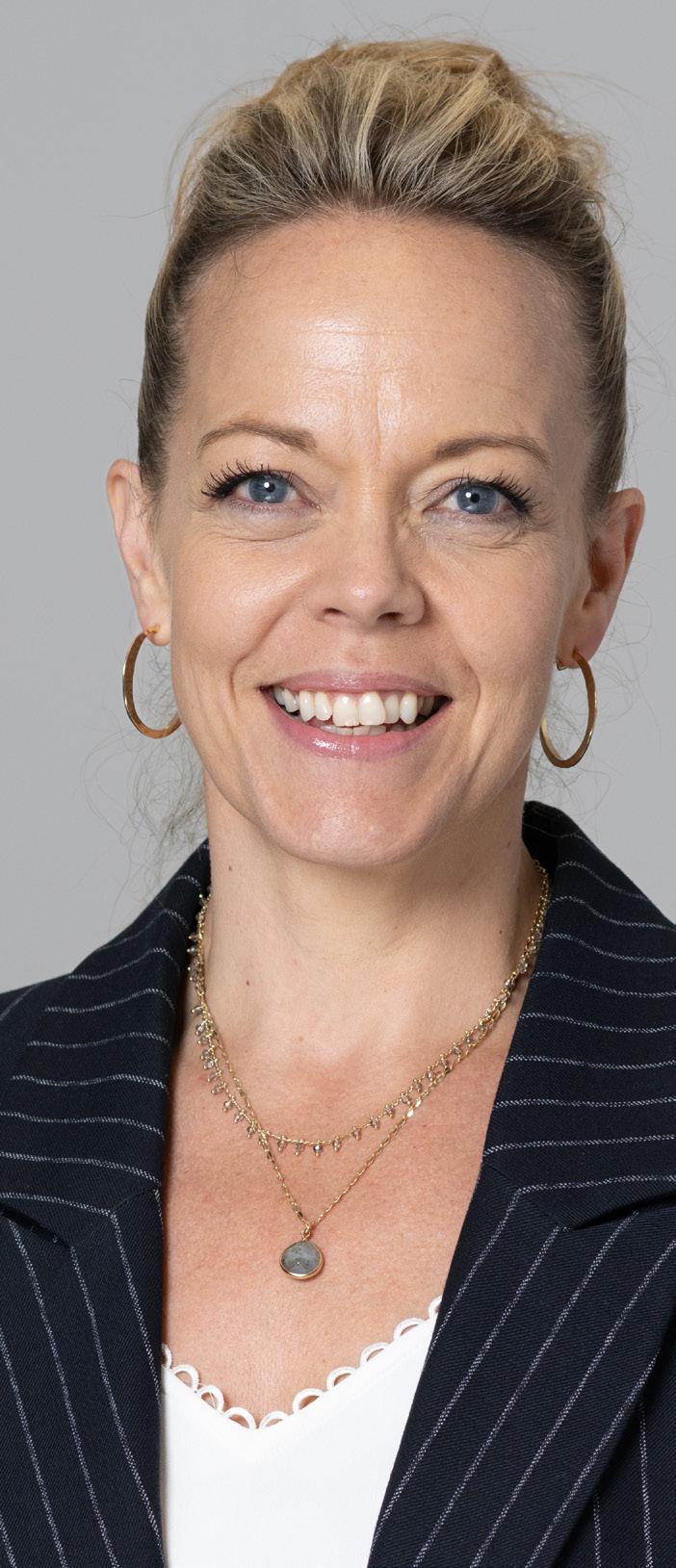
education. We apply the knowledge, research and networks of Cambridge University and our 80 global offices to help our partners tackle some of their biggest challenges.
Cambridge Partnership for Education was formed just over three years ago to bring together Cambridge University’s experts in education reform from across different teams into a single unit. With 150 years of expertise in education, we now work with governments
in more than 25 countries and reach more than 30 million teachers and learners with our resources and curricula.
How has the K12 education landscape transformed over the last five years and where is it heading now?
The K12 education landscape has changed radically over the last five years. It may now seem almost too cliched to say, but the
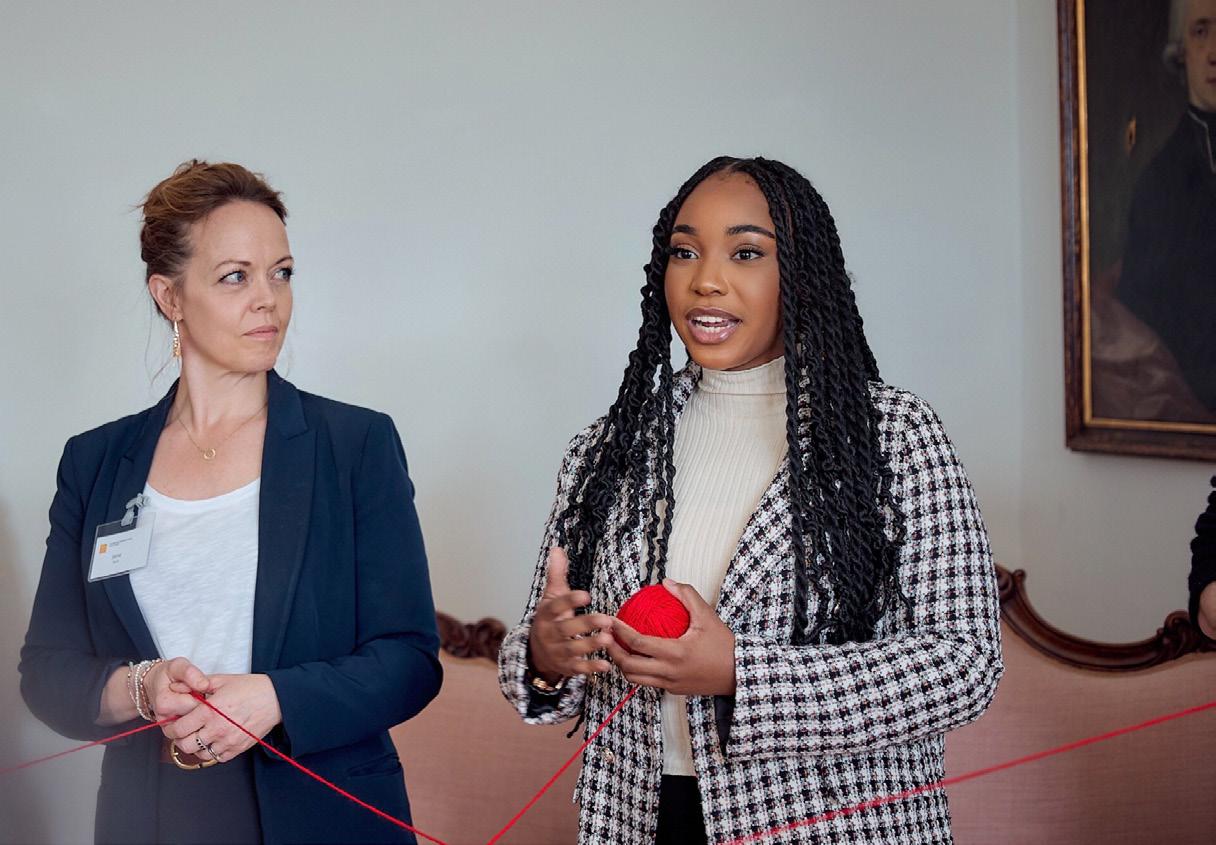
K12 Digest February 2024 24
Covid-19 pandemic changed the world forever. It was the catalyst for a global education crisis and we’re seeing the fallout from that across the globe now, not only educationally, but in children’s mental health, too. While we were already behind on achieving UN Sustainable Development Goal 4, quality education for all by 2030, the pandemic took a significant toll on learning and children’s wellbeing around the world.
We are also experiencing a very concerning increase in the number of children in emergency and crisis situations, often as a result of conflict or climate-related natural disasters. Figures released in June of this year by Education Cannot Wait put the number of children whose education has been disrupted by conflict, climate change and other disasters at 224 million. Only 11% of these children are in school and reaching minimum standards in their reading or maths.
Now, as called for by UNESCO at the United Nations General Assembly last year, we must ‘reboot’ our education systems to ensure they are fit for purpose, fit for the future, and fit for every child – including the most vulnerable. No one can achieve this alone, and no one can achieve this all at once. Deep partnerships must play an essential role in transforming education systems, so they are more reliable and sustainable, preparing the next generation for the challenges and opportunities ahead.
Deep partnerships must play an essential role in transforming education systems, so they are more reliable and sustainable, preparing the next generation for the challenges and opportunities ahead
Working in close and long-term partnership is one of the most satisfying things about my role. It gives you the space and the trust to face challenges together, and address them in the most sustainable way, and to never stop learning from each other. For example, we have been working closely for many years with the Ministry of Education in Oman on an ambitious programme of transformation for their maths and science education for every child in a government school. Together, we created new curricula that better prepare children for the world of work and the uncertain future ahead. By working in close partnership, the result is both highly tailored for the Omani context and draws from international best practice.
K12 Digest February 2024 25
As we increasingly work to support Education in Emergencies at Cambridge, we’re finding these same principles for effective education transformation apply in emergency circumstances
We’ve also recently established a fellowship to support senior government leaders to navigate one of the key components of this education transformation: technology. The HP Cambridge Partnership for Education EdTech Fellowship sees top innovators from different nations come together to explore research, policy and leadership, building the skills and networks to implement meaningful change. The connections these Fellows are forming are profound and will lead to a remarkable community of practice, who can support and learn from each other.
What are the challenges in the current field of education, and how and what can we do to improve?
Countries across the world are facing challenges of education equity, access, quality, and relevance.
One of the most important things to consider in tackling these challenges is that one size does not fit all. Context is king. Every education system is unique, and our solutions should recognize this. We can’t just lift an education solution that works for one country or context and drop it into another without understanding the differences between the two.
Linked to this, it is important that we seek to understand the whole education system and consider the relationships between its different parts. Otherwise, changes can end up having unintended consequences or reduced impact. We must seek to make education systems more coherent: with the various elements –from teacher training to assessment – aligned with one another and with the system’s overall purpose.
At Cambridge, our research-based diagnostic framework helps ministries of education, and education leaders to explore each part of an
K12 Digest February 2024 26
education system and their interactions with one another, so they can design and deliver policy that successfully improves education. Deeply understanding local context is a big part of this, but it is also informed by research from around the world.
Making better use of evidence is a vital part of tackling the education crisis. There is a growing wealth of educational research, but not enough of this is used by governments and organisations responding to urgent challenges. Research can surprise us and change our approaches and choices. For example, researchers at Cambridge University recently found that putting disadvantaged children first creates education systems that work for everyone. As a result, funding was shifted in Ghana for the benefit of 450,000 of their most vulnerable children.
Finally, it is also important we gather and analyse data before, during and after programmes of education transformation to ensure we are having the intended impact and inform further action. At Cambridge, our Partnership for Education Impact Framework tracks impact across a wide variety of areas so we can see the results of our work, better demonstrate them, and strengthen our support to governments and organisations to reach their goals to improve learning for all children.
As we increasingly work to support Education in Emergencies at Cambridge, we’re finding these same principles for effective education transformation apply in emergency circumstances. For example, we’ve been working with the Ministry of Education & Science in Ukraine to pilot
a programme to support their displaced learners in the short term, which also supports their long-term vision for New Ukrainian Schools and a thriving future for the nation beyond the war.
Can you speak about the importance of female leadership in the field of education, and how your own experience as a woman in this field has influenced your leadership style? Diversity is a key ingredient for great leadership. Leadership needs to reflect the communities it is leading and serving, and that includes gender.
In the field of education, some of the biggest challenges include gender. Millions of girls are still out of school around the world, and in almost half of countries there is a long way to go to properly address the learning gap between boys and girls.
I lead the British Educational Suppliers Association (BESA)’s Women’s Network and, over the past decade, I have seen an acceleration in the equality of leadership opportunities for all genders across the sector. Of course, there are still big challenges that need addressing - including parental leave, menopause, the split caring role 21st Century women are increasingly taking on (whereby we are caring for both children and parents), and the intersectionality of all these issues – and I feel fortunate to work for an organisation committed to tackling them.
How can generations work together to transform education for the better?
Recently I have seen a seismic shift from tokenistic intergenerational collaboration to
K12 Digest February 2024 27
young people truly driving forward change at the highest levels. I have found this a great source of hope and positivity when thinking about the global challenges ahead for us all.
Last year, at the Transforming Education Summit at the UN General Assembly, I met young people from across the world who represented the global movement of youth as central agents of change, as manifested in the Youth Declaration. Though we must always work to ensure inclusion as well as diversity in every forum, it was the first time I had seen the power of intergenerational dialogue to challenge the education crisis in action.
It was this experience that prompted us at Cambridge to became one of the founding
members of the Transforming Education CoAction Summit hosted by Salzburg Global Seminar, which focuses on the role of intergenerational leadership and collaboration in transforming education systems. At our first summit, we discussed how decision-makers must be representative of society – and how, in some parts of the world, society is increasingly made up of youth, not to mention that young people everywhere are proportionately one of the largest groups affected by education.
At this year’s UN General Assembly, we supported the Summit’s ‘Uniting Generations: Sharing Power to Transform Education’ workshop, presenting our collective guide on rethinking the way we share power
Through intergenerational leadership, we can develop systems which better support teachers to be teaching relevant skills and knowledge, in a relevant way
K12 Digest February 2024 28
across generations to support education transformation that is more resilient and adaptable.
A more inclusive process will drive greater relevancy in education. We know from recent research, like Big Change’s Big Education Conversation, that the younger generation wants relevant education. They want to see what they are learning inside, and outside school applies to the challenges and opportunities all around them. Through intergenerational leadership, we can develop systems which better support teachers to be teaching relevant skills and knowledge, in a relevant way.
None of us are able to achieve success without some help along the way. Is there a particular person who you are grateful towards who inspired you?
I have been lucky enough in my career to meet and work with many inspiring and amazing people, dedicating their lives to improving education, often despite a number of challenges. Each time leaves me with deeper understanding and respect. Very often these people are at the chalk-face, but I have met deeply inspiring Ministers, too. Early on in my career, I was honored to work with one such Minister operating in some of the most challenging circumstances imaginable. Their determination that the children in these circumstances didn’t only deserve equality of education – but that they deserved the very best in education – changed my approach to work forever. They taught me the importance of consistent focus, of not being distracted
from the larger goal by smaller frustrations on the way. This ‘relentless pragmatism’ is one of the biggest lessons I have learned in my career, and something I work to cultivate continuously
What’s a leadership lesson that you’ve learnt that’s unique to being a female leader?
Women are, of course, fantastically different and diverse. Nonetheless, a trait I’ve often come across in female leaders is the ability to communicate authentically. Hand in hand with this is a strong sense of self-awareness. This is of course not unique to female leaders, but it is strikingly common among this group.
Last week, Dame Melinda Simmons spoke at Cambridge about her time as Ambassador of the U.K. to Ukraine, spanning not only Covid, but the outbreak and continuing horror of the war. Her most important piece of advice was to “Be yourself.” This is such a short statement, but Dame Melinda was saying something profound about aligning your actions with your values, building trust among your team, and being resolutely self-aware. The ability to do that even in such an extreme context is remarkable leadership indeed.
What is your secret to striking a work-life balance?
I don’t believe I’ve found the secret! However, I have found that when I’m physically present at home, I need to make sure I’m also mentally present. I have three teenage boys, and they are growing up fast, so when I’m at the dinner
K12 Digest February 2024 29
In five years’ time, we’ll have just two years left to achieve the UN Sustainable Development Goals (SDG) by 2030, including education for all
table, I try to make sure I’m really listening to what my family have to say, and not running through tomorrow’s work in the back of my mind.
Where do you see yourself in the next 5 years?
In five years’ time, we’ll have just two years left to achieve the UN Sustainable Development Goals (SDG) by 2030, including education for all. Every step in the journey and beyond is enormously important. As a leader in the education transformation sector, building resilient teams that can help governments and organisations for the long haul is at the heart of what I do.
I’m excited about what’s ahead – I think we could see transformational results from current
investments in intergenerational leadership, cross-border collaboration, locally-driven innovation and creative thinking.
What advice would you like to give young women out there who are interested in pursuing careers in tech or education in general?
1. The people you can learn from are not always older than you. I recently made the decision never to engage in a traditional mentor-mentee relationship again, from now on I will always co-mentor as we have so much to learn from each other.
2. You don’t need to ask for permission –trust yourself to drive powerful change. We need you!
3. Never stop asking questions.
K12 Digest February 2024 30

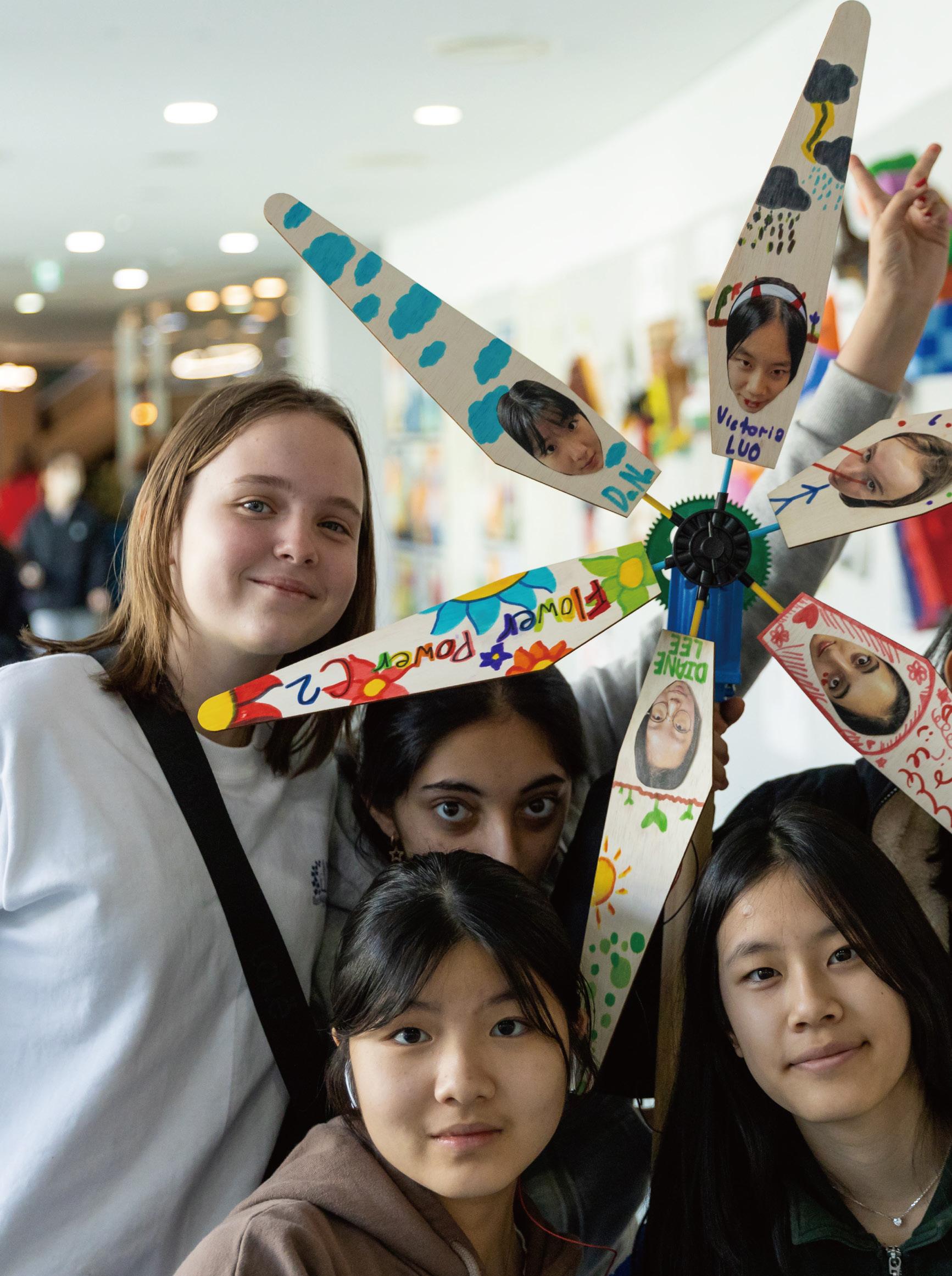
32

MOST ADMIRED INTERNATIONAL SCHOOL IN ASIA
BRANKSOME HALL ASIA
Cultivating Global Leaders on Jeju Island
South Korea’s largest island, Jeju Island, with its breathtaking landscapes and unique cultural blend, presents a compelling case for hosting an international school. Its stunning natural beauty, including volcanic landscapes, waterfalls, and pristine beaches, offers students a stimulating environment conducive to learning and personal growth. Nestled within the UNESCO World Heritage Site of Jeju Island, Branksome Hall Asia emerges as a vibrant community dedicated to nurturing globally-minded leaders. “Our location on Jeju Island serves as a unique asset, providing an immersive and enriching learning environment. Students benefit from
K12 Digest February 2024 33

ABOUT DR. BLAIR LEE, HEAD OF SCHOOL, BRANKSOME HALL ASIA
Dr. Blair Lee, an international educator from Canada, has been the Head of Branksome Hall Asia since August 2022. He is a versatile, dedicated, and student-focused professional with more than 25 years of experience in school administration, 18 of which have been spent working internationally. Throughout his career, he has successfully created supportive learning communities by developing a positive and healthy school culture where students, teachers, and parents work together to help students find success. He continually strives to build his school leadership reputation as an ethical, collaborative, and servant leader. He has worked in IB schools for a total of 14 years. His previous international experience includes positions at the American International School of Kuwait, Mount Zaagham International School (Indonesia), Seoul Foreign School, and Dalian American International School (China).
K12 Digest February 2024 34

Branksome Hall Asia offers a comprehensive and seamless education journey to students from junior kindergarten to Grade 12, with a focus on the rigorous and globally recognized IB curriculum.
firsthand experiences with the island’s natural beauty, rich cultural heritage, and diverse ecosystems, fostering environmental awareness and global citizenship.” says Dr. Blair Lee, Head of School, Branksome Hall Asia.
Since its establishment in 2012 as the sister school of Branksome Hall Canada, a beacon of educational excellence for over a century, Branksome Hall Asia has embraced a commitment to academic rigor and the empowerment of its diverse student body. Dr. Lee shares, “Our belief in providing an inclusive and dynamic educational environment led us to introduce the boys program in middle school this year, expanding into high school soon after. We aim to create a space where
K12 Digest February 2024 35
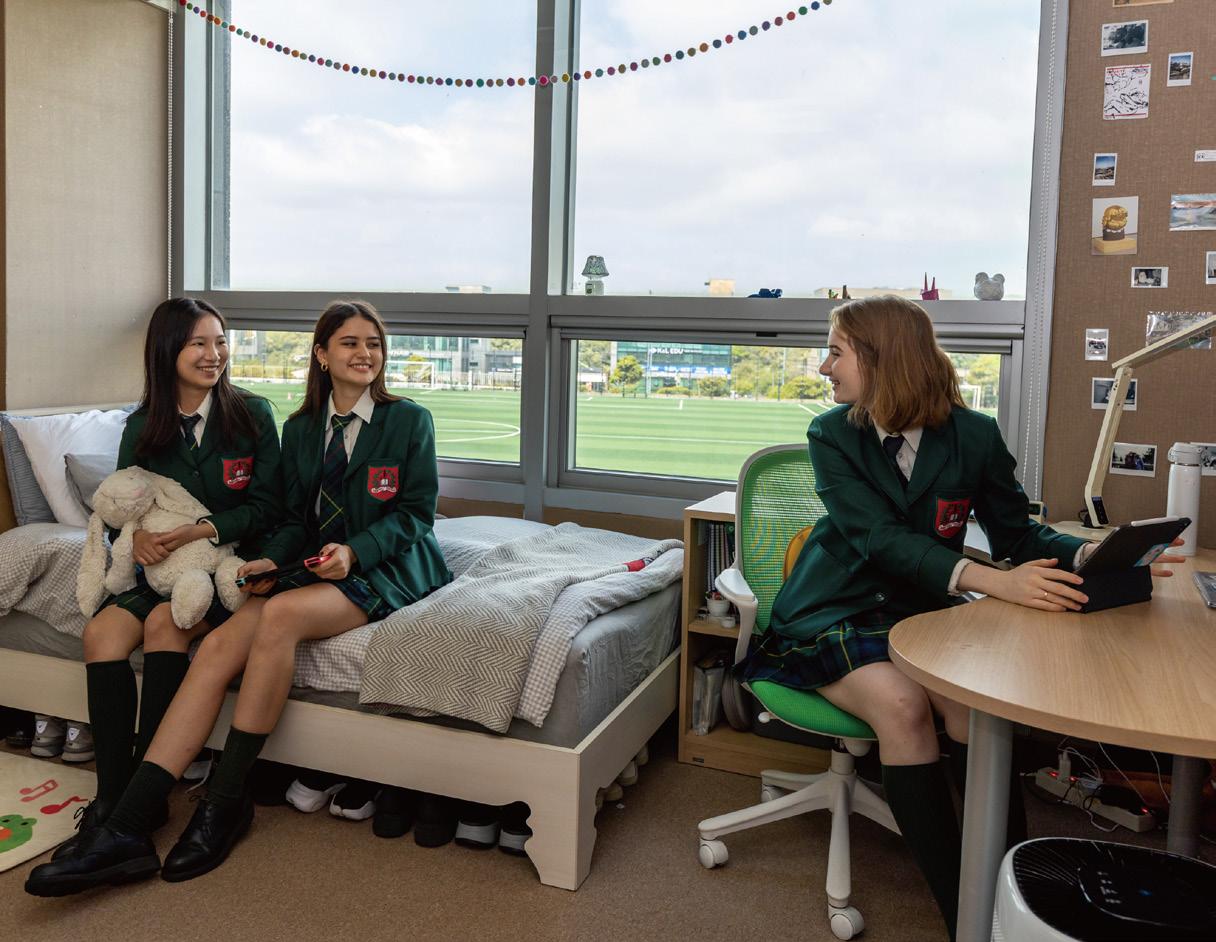
every student can thrive and discover their unique potential.” The eagerly anticipated addition of boys boarding in August 2024 marks a significant step towards creating an all-encompassing educational experience.
Dr. Lee’s passion for education resonates with the school’s mission: “We aim to ignite a genuine passion for learning, empowering our students to become critical thinkers, compassionate leaders, and responsible global citizens.” This passion finds expression in a comprehensive IB curriculum spanning the Primary Years Program (PYP), Middle Years Program (MYP), and Diploma Program (DP).

K12 Digest February 2024 36
Branksome Hall Asia’s vibrant community celebrates diversity, creating an inclusive environment where students of all backgrounds are encouraged to share their unique perspectives.

Looking toward the future, Dr. Lee envisions Branksome Hall Asia as more than just a hub for academic excellence. He says, “We want to be a tight-knit community known for fostering cultural understanding and a deep respect for the natural environment.” This vision reflects the school’s commitment to holistic growth, where students not only expand their intellectual horizons but also develop an awareness of diverse cultures and a sense of environmental responsibility.
Empowering Global Minds through Holistic Education
Branksome Hall Asia offers a comprehensive and seamless education journey to students from junior kindergarten to Grade 12, with a focus on the rigorous and globally recognized IB curriculum. Dr. Lee emphasizes, “IB framework provides a consistent and in-depth learning experience that prepares students for success in a globally interconnected world.”
Branksome Hall Asia is unique for its dynamic partnership with Branksome Hall Canada, which transcends geographical boundaries. Dr. Lee notes, “Our unique partnership with Branksome Hall Canada fosters enriching academic and cultural exchanges, broadening students’ global perspectives and exposing them to diverse learning environments.”
Located on the picturesque Jeju campus, Branksome Hall Asia offers state-of-theart facilities that support the innovative STEM-V program, which combines visual arts with science, technology, engineering, and mathematics. The campus also features a dedicated Performing Arts Center, including
K12 Digest February 2024 37
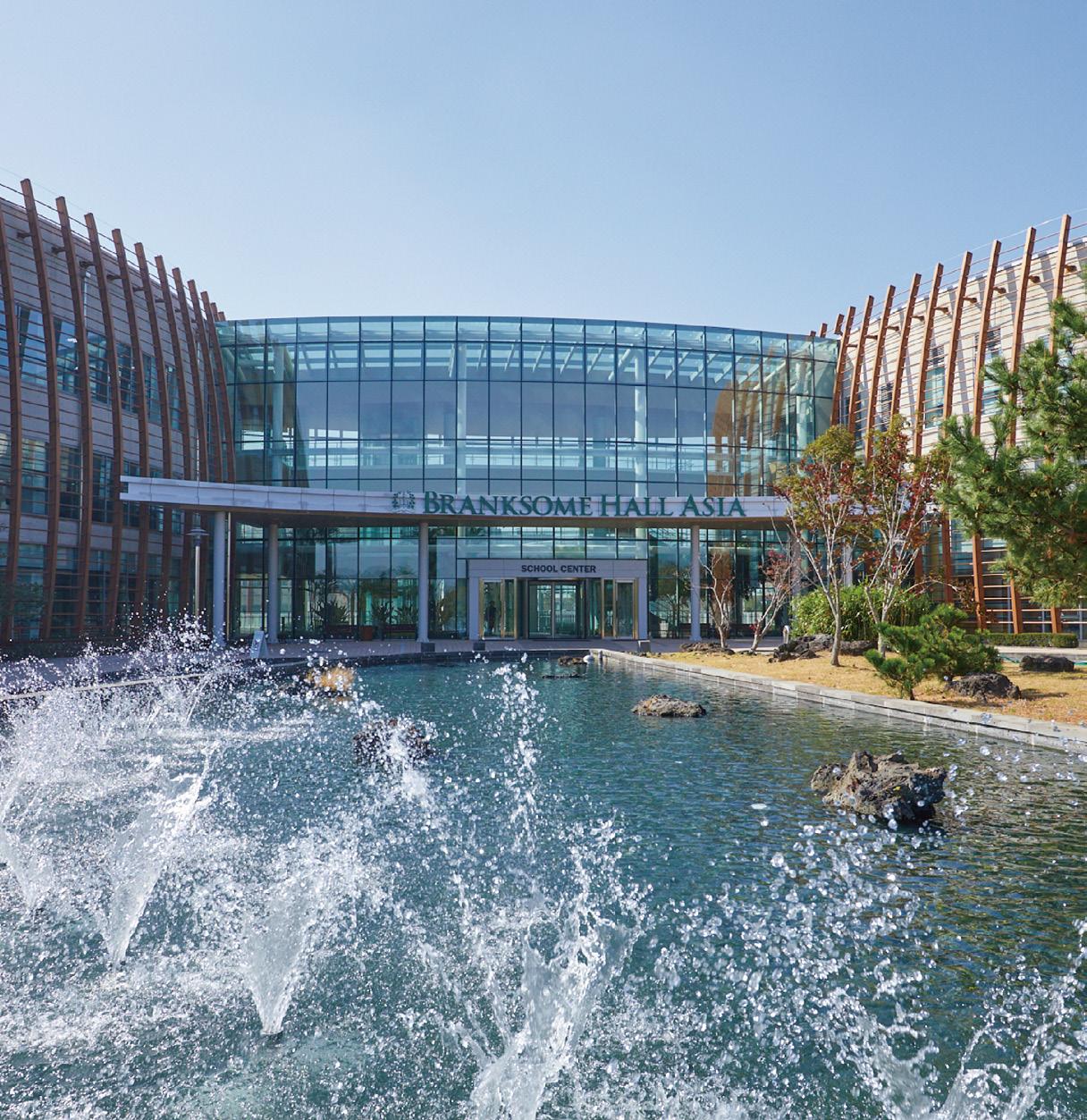
K12 Digest February 2024 38
a 400-seat theater, black box theater, film studio, orchestra, and choral rooms.
At the core of Branksome Hall Asia’s educational philosophy is the emphasis on holistic development and student empowerment. The IB programs prioritize active student participation, encouraging critical thinking and the real-world application of knowledge. “We empower students to take initiative, collaborate effectively, and develop the essential skills required for lifelong learning and leadership,” adds Dr. Lee.
The school’s vibrant community celebrates diversity, creating an inclusive environment where students of all backgrounds are encouraged to share their unique perspectives.
“We believe in nurturing respect for cultural differences and building bridges of understanding across borders,” pinpoints Dr. Lee. Choosing Branksome Hall Asia means investing in an educational experience that
transcends boundaries, fostering a global mindset within a dynamic and inclusive community and setting the stage for a lifetime of success and cultural understanding.
Nurturing Independence and Global Citizenship
The Branksome Hall Asia campus located on Jeju Island is designed with great attention to detail and equipped with state-of-the-art facilities. It’s built to enhance the learning experience, and each school division has its own dedicated building, complimented by shared spaces. The Design Lab is a center of innovation, furnished with 3D printers, CAD, laser cutters, and think tank spaces. This facility fosters the convergence of education and supports the STEM-V program.
Dr. Lee shares, “Our IB World School programs stand out by focusing on leadership, autonomy, and active student participation
The Branksome Hall Asia campus located on Jeju Island is designed with great attention to detail and equipped with state-of-the-art facilities.
K12 Digest February 2024 39
in academics and extracurricular activities.”
The Primary Years Program (PYP), Middle Years Program (MYP), and Diploma Program (DP) contribute to holistic development, nurturing critical thinking, creativity, and a global mindset. Dr. Lee highlights, “The IB continuum, from PYP to DP, ensures continuous development across various dimensions of learning, preparing students for a dynamic world.”
Branksome Hall Asia’s boarding program is available for both boys and girls, providing a ‘home away from home’ experience. The
boys’ program caters to grades 6-8, while the girls’ program spans grades 6-12. Noteworthy benefits include access to teachers and school facilities on weekends, reducing transportation needs, and allowing for more study time and facility utilization. Dr. Lee notes, “Our boarding program is designed to foster independence, community living skills, and global citizenship, offering a unique environment for personal growth.”
Moreover, the Boarding Program provides opportunities for language development and offers drop-in sessions for counseling and
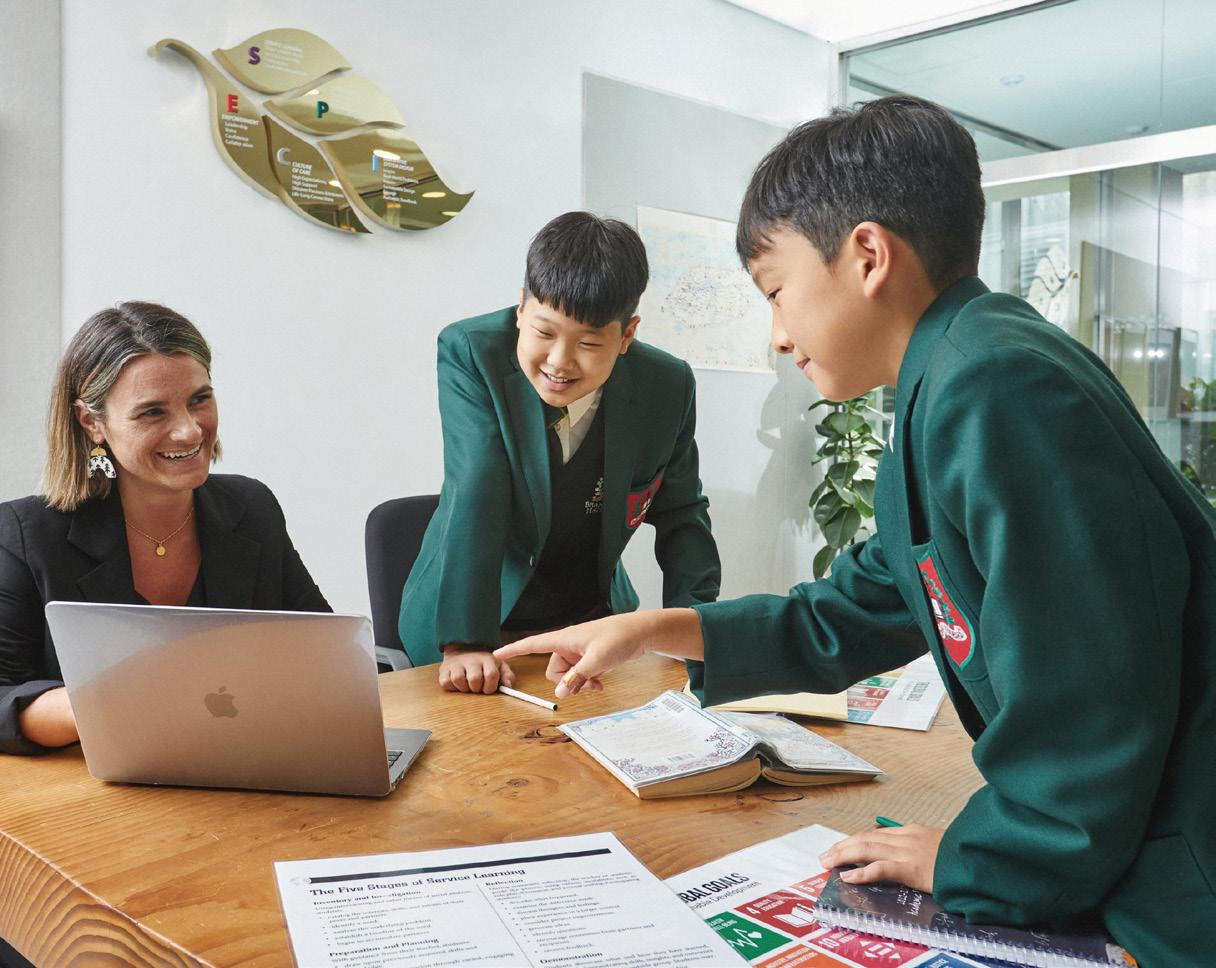
K12 Digest February 2024 40
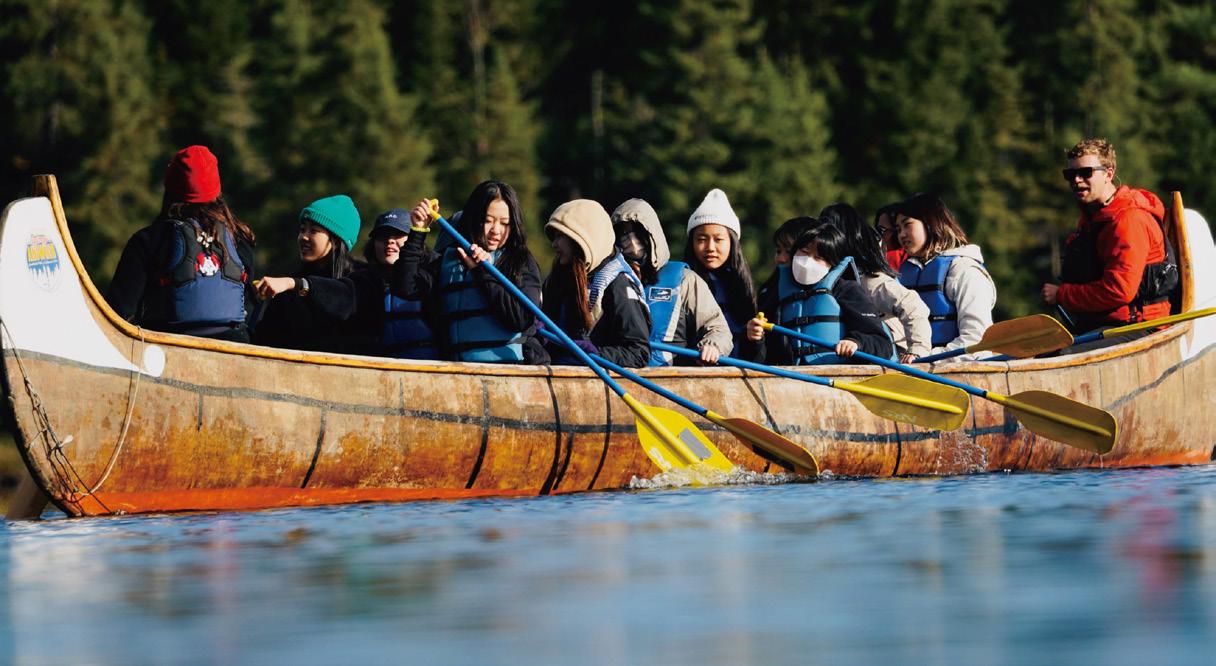
Branksome Hall Asia’s Boarding Program provides opportunities for language development, particularly for girls, and offers drop-in sessions for counseling and academic support throughout the year.
academic support throughout the year. Family Dons play a crucial role in nurturing and caring for a small ‘Family’ of students in a 1 to 10 ratio. The program also emphasizes leadership opportunities through a weekly Council meeting where students discuss Boarding life and learn essential life skills.
Building Bridges, Creating Memories
In the tight-knit community of Branksome Hall Asia, building connections is more than a goal—it’s a way of life. Dr. Lee says, “Our strength lies in the bonds we create within our community. It’s not just a school; it’s a place where families come together to share in the
K12 Digest February 2024 41
journey of education.” One cherished event that embodies this sense of togetherness is Plaid Tidings, the school’s annual holiday bazaar. Dr. Lee expresses, “Plaid Tidings is a celebration that brings our entire school community together. It’s not just about festivities; it’s about creating memories that last a lifetime.”
On the flip side, the collaboration with Branksome Hall Canada goes beyond academics—it’s a bridge of shared experiences. Dr. Lee remarks, “When our G9 students embark on the Toronto adventure, it’s more than a cultural exchange. It’s a journey of self-discovery, building connections that transcend borders.” Echoing this sentiment, plans for a similar program with a boys’ school in Canada are in the works. Dr. Lee envisions, “Expanding our exchange programs is about creating global citizens, fostering friendships that shape perspectives and transcend differences.”

In the tight-knit community of Branksome Hall Asia, building connections is more than a goal—it’s a way of life.
K12 Digest February 2024 42

Supporting students in their personal and academic endeavors is a testament to Branksome Hall Asia’s commitment.
Dr. Lee emphasizes, “Our care goes beyond academics; it’s about nurturing the whole individual. We aim to provide a supportive environment where students can thrive personally and academically.” When it comes to admissions, Branksome Hall Asia
considers various criteria to ensure a good fit between the school’s offerings and the prospective student’s needs and aspirations. These criteria include recommendations from previous schools, the last two years of report cards, student interviews (G6-12), and MAP tests. In August 2024, the school will start a boys boarding program that will expand into high school in the coming years.
K12 Digest February 2024 43
Greece’s Outdoor Education Debut: A Pilot Program Passes with Flying Colors
Dr. Aristea Kyriakou, Co-Founder and Director, European Outdoor Education Hub
In the heart of Greece, a revolutionary tide is turning in the primary educational system. For the first time, public primary schools and kindergartens are witnessing the introduction of Outdoor Education—a transformative approach to learning that the European Outdoor Education Hub (EOE Hub) is pioneering through the Schooler Planet, an innovative education program promoting outdoor education and sustainable living practices in schools in Greece and beyond, funded by the Athanasios and Marina Martinos Foundation.
Navigating the Challenge
The problem of disconnection from nature and communities is pervasive among students, contributing to environmental and social issues that threaten our planet and wellbeing. The traditional classroom model has limited students’ interactions
K12 Digest February 2024 44
INDUSTRY PERSPECTIVE

Dr. Aristea Kyriakou is the Co-Founder and Director of the European Outdoor Education Hub and a distinguished academic, holding a Doctorate from the University of Aberdeen, Scotland, as a scholar of the Onassis Foundation. She has further honed her expertise with a post-doctoral fellowship and has earned a Master of Research (MRes) from the University of Aberdeen and a Master of Science (MSc) specializing in Outdoor Environmental Education and Outdoor Life from Linköping University, Sweden. Dr. Kyriakou has orchestrated numerous educational programs in Sweden, Scotland, and Switzerland and is actively engaged in European-wide initiatives. Additionally, she serves as an Ambassador of the European Climate Pact, advocating for sustainable educational practices and environmental responsibility.
K12 Digest February 2024 45
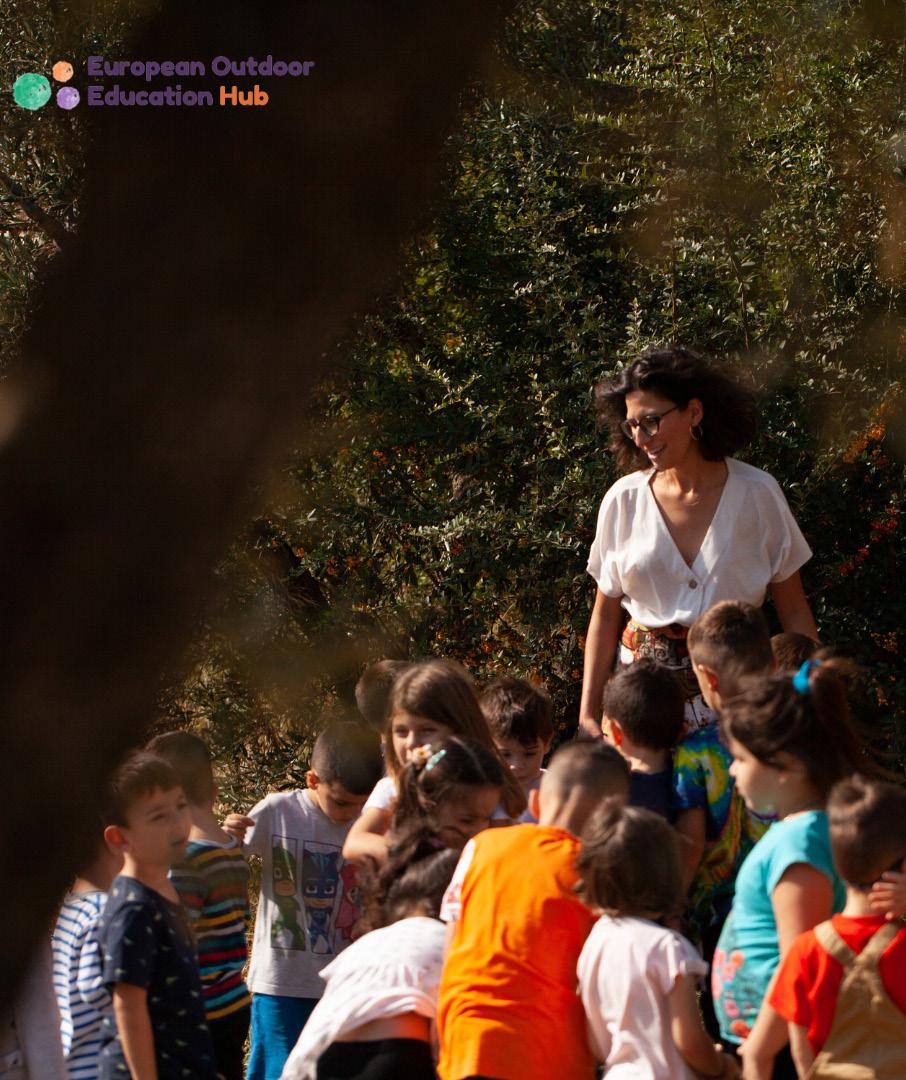
K12 Digest February 2024 46
with the natural world, which is vital for their health and the development of environmental awareness. As a result, many students suffer from a range of health problems, including obesity, anxiety, and depression, due to limited time spent outdoors. Furthermore, the absence of structured outdoor education often leads to an inadequate understanding and appreciation of the natural world. This gap in knowledge can extend to students being unaware of the impact their daily actions have on the environment, such as energy consumption and waste production.
The EOE Hub’s initiative seeks to remedy these challenges by transforming school grounds into dynamic learning landscapes for discovery. By weaving academic concepts with the rich tapestry of the natural world, the EOE Hub aims to reconnect students with their local environments and communities. This innovative approach fosters a holistic learning experience that goes beyond traditional education, aiming to enhance both
students’ and teachers’ engagement with the natural world. The result is a multisensory educational journey that not only addresses the disconnection challenge but also promotes health, wellbeing, and environmental awareness among young learners.
Is this all new?
Outdoor Education, once primarily associated with environmental studies or relegated to the realm of extracurricular activities has been transformed by the European Outdoor Education Hub (EOE Hub) into a core element of Greece’s school curriculum. This shift transcends the traditional use of classroom spaces, reimagining educational environments to foster a holistic learning experience. By weaving academic concepts with the rich tapestry of the natural world, the EOE Hub has turned school grounds into vibrant arenas for discovery, offering a multisensory educational journey that fully engages both students and teachers.
Outdoor Education, once primarily associated with environmental studies or relegated to the realm of extracurricular activities has been transformed by the European Outdoor Education Hub (EOE Hub) into a core element of Greece’s school curriculum
K12 Digest February 2024 47
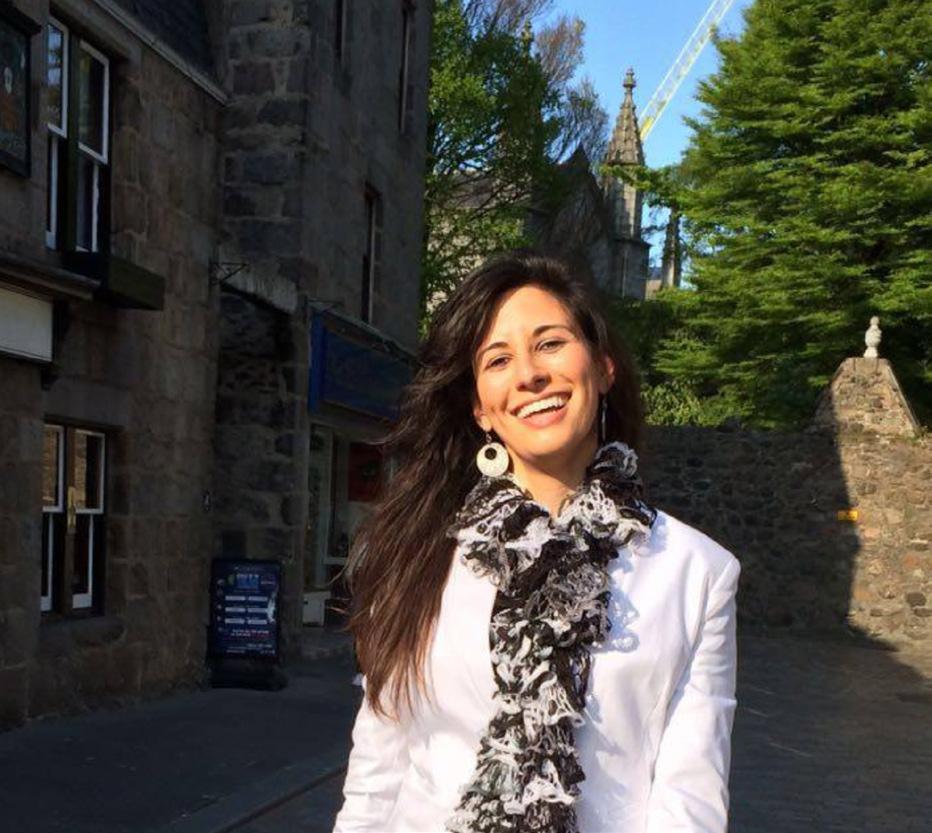
Milestones of Change
The inaugural pilot project of Outdoor Education, ‘Schooler Planet,’ has been launched across five distinct classes in four different public schools, engaging over 100 students and training more than 50 teachers. Over the span of three months, this initiative has achieved five significant milestones:
1. Elevated Lesson Engagement: All participating teachers have reported a remarkable increase in student engagement during and after the implementation of the Schooler Planet project. The invigorating outdoor environment has revitalized the educational experience, sparking renewed enthusiasm among students.
2. Amplified Cognitive Outcomes: More than 80 interactive activities which were designed across 10 workshops have made complex concepts accessible. This tactile approach has enabled students to easily comprehend intricate ideas, transforming learning into an enjoyable and purposeful pursuit. Participating students exclaimed “These were the best days of my life”, illustrating the profound impact of the project, particularly for students residing in urban environments.
3. Empowering Educators: The EOE Hub has hosted numerous practical workshops for teachers, equipping them with essential skills to integrate dynamic outdoor education strategies into the national curriculum. More
K12 Digest February 2024 48
importantly, these workshops were conducted on-site, enabling teachers to directly apply these strategies within the familiar context of their own school grounds. Initially, participating educators had seldom, if ever, used their school grounds for implementing classes. By the end of the project, 100% of them demonstrated not only a newfound comfort with but also a commitment to continuing outdoor teaching and learning practices.
4. Health-Conscious Habits Cultivation:
The schools involved in the Schooler Planet initiative have taken significant strides in nurturing health-conscious habits in students. By actively promoting physical activities, during language classes, math, physics etc., within the school’s green spaces, the program has given attention to students’ physical fitness levels and
agility. Moreover, regular exposure to sunlight during school hours has been instrumental in improving the students’ mood. These outdoor activities have also been linked to reducing stress, fostering social skills, and improving concentration, all of which are essential for mental health and academic success.
5. Advanced Curriculum Resources: The EOE Hub’s commitment to innovation extends to the development of research-validated materials designed for primary grades and kindergarten. These resources provide teachers with robust and inventive tools to conduct outdoor learning sessions with efficacy and sustainability in mind. Notably, teachers who initially reported being unfamiliar with outdoor education concluded the project prepared and motivated to continue integrating these strategies in the future.
By actively promoting physical activities, during language classes, math, physics etc., within the school’s green spaces, the program has given attention to students’ physical fitness levels and agility
K12 Digest February 2024 49
As the European Outdoor Education Hub (EOE Hub) continues to chart new territories in Outdoor Education across Greece, its programs notably excel, going beyond mere alignment to enhance national curricular objectives
Looking forward: A Blueprint for Nature-Based Learning
As the European Outdoor Education Hub (EOE Hub) continues to chart new territories in Outdoor Education across Greece, its programs notably excel, going beyond mere alignment to enhance national curricular objectives. The Schooler Planet initiative empowers educators to expand their classrooms into the natural world, ensuring that lessons encompass essential academic content while also addressing critical environmental issues such as climate change and global warming.
What differentiates this organization from similar ones is the commitment to comprehensive and on-site support. We provide ongoing professional development for teachers, enriching their pedagogical toolkit to confidently facilitate outdoor learning in their own school grounds. At this crucial juncture towards a sustainable educational paradigm, the EOE Hub extends an invitation to educational institutions across Europe to join us. Together, we can develop learning environments that nurture awareness, ignite curiosity, and instill a deep respect for our planet.
K12 Digest February 2024 50





Reinventing Classrooms: Optimizing Curricula and Classroom Management
Erin Cockrell, Educational Leadership Consultant, Center for Teacher Effectiveness
As educators, the lifelong learning journey is driven by a passion to shape young minds and create environments conducive to academic growth. There’s a crucial element holding the entire educational structure together: classroom management. In the ever-changing landscape of student behavior, especially post-
Covid, this complex issue gains prominence. Classroom management serves as the bedrock upon which curricula efficacy stands. Welcome to the saga of the often unarticulated expectations between classroom management and curricula; they are dance partners, and how they dance in the classroom shapes the outcomes of educators and students alike.
Classroom management is the heartbeat of successful learning. As a K12 educator and learning advocate, I have delved into thousands of students’ learning patterns
K12 Digest February 2024 52
BEST PRACTISES
With a career spanning over two decades in education, Erin Cockrell assumed diverse roles, including a K-12 business owner, author, coach, national K12 leader, curriculum writer, and professional development manager. Through collaboration with 40,000+ educators and students, she has gained unique insights into successful teaching and learning. Her focus lies in reigniting the joy of learning, emphasizing robust student engagement, and fostering environments that support quality learning, teacher satisfaction, and outcomes. She has observed firsthand the impact of classroom management on curriculum effectiveness. Erin’s philosophy aligns with Madeline Hunter’s belief that ‘Kids don’t care how much you know until they know how much you care.’ She advocates for simple yet effective strategies to bring about positive change in classrooms. Challenging the assumption that all students come to class ready to learn, she empowers educators by equipping them with a comprehensive toolbox of strategies so that they can confidently navigate a gamut of situations and bring out the best in their students.

Classroom Management
Professional Development
In the grand tapestry of a teacher’s yearly preparation, before Covid, classroom management (CM) might have been an overlooked thread. However, Covid has necessitated a reassessment of priorities. Strategizing through the challenges of managing a classroom, navigating diverse personalities, and orchestrating an environment conducive to learning now takes center stage. Due to teacher shortages, schools are compelled to hire ill-equipped staff: permanent or semi-permanent substitutes untrained in CM, without standard teacher education, which, at different times, would be an understood prerequisite. Even for certified teachers, a commonly held assumption is that they had sufficient CM training in college, which remains relevant today.
The Heartbeat of a Classroom Classroom management is the heartbeat of successful learning. As a K12 educator and learning advocate, I have delved into thousands of students’ learning patterns. Although their curricula were often coherent and meaningful, the message was not always conveyed. Students, especially when encountering a topic for the first time, heavily rely
on classroom discourse to make the content on the page come alive. Repeatedly, I encountered students unable to learn due to distracting, low-level classroom behavior. Understanding both the teacher and learner perspectives, I couldn’t stand by idly. Thus, I started working with schools to optimize learning through CM. Once educators are equipped with high-impact and simple-to-implement solutions, the results are dramatic. Teacher feedback after CM training consists of improved student outcomes, relationships, engagement, and appreciation for the classroom. COVID’s new behavior challenges are quelled when teachers have a toolbox of strategies. Teachers on the brink of leaving the profession have a reignited vigor and passion for teaching. Students respect the environment as a space for everyone’s learning and actively contribute with a tone of mutual respect. Students tell their parents that they love going to school and learning. I can’t think of anything more rewarding.
It’s heartbreaking to see how classroom chaos often leads to teacher attrition, impacting more than just students’ scores. When I meet with educators, we discuss all the angles that management impacts: the quality of learning, teacher and student job satisfaction, the tone and quality of parental and

K12 Digest February 2024 54
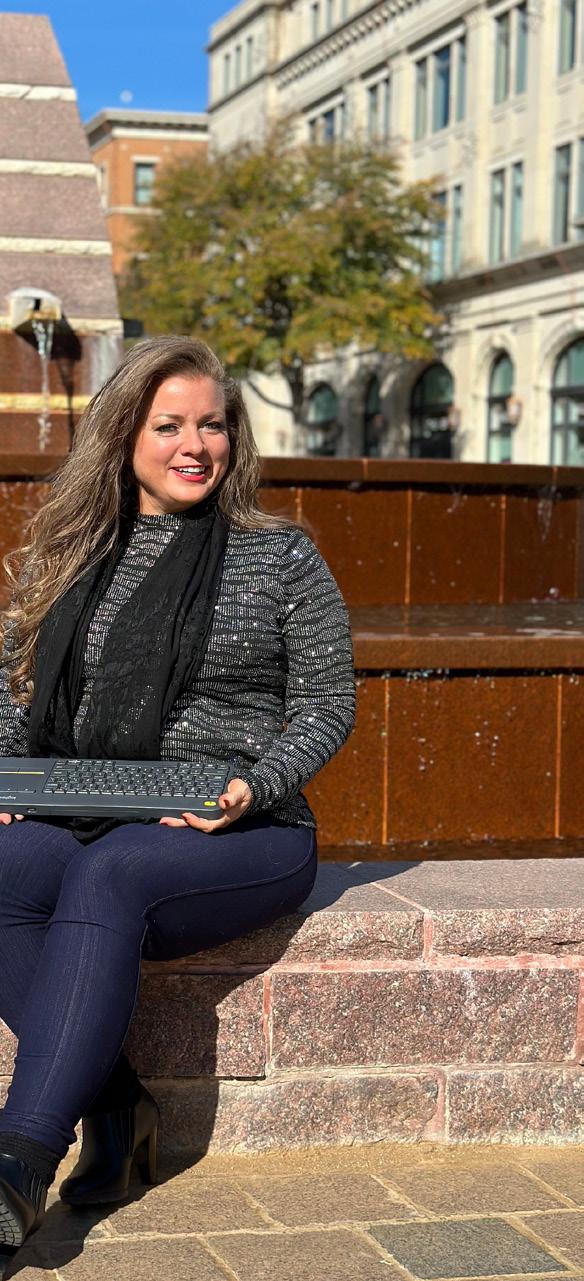
administrator support, absenteeism, bullying, student psychology, and students’ belief in their ability to learn, among others.
Teachers share feedback after a CM training, emphasizing the tremendous impact a supportive academic environment has on teacher job satisfaction—a vital ingredient in retaining educators who are the lifeblood of our educational system. Districts are facing a teacher shortage where some educators have no CM or formal teacher training. There is a solution. Office referrals can be reduced to nil. One assistant principal reported that after her teachers implemented strategies from the recent training,
It’s heartbreaking to see how classroom chaos often leads to teacher attrition, impacting more than just students’ scores
K12 Digest February 2024 55

As educators, we are all privy to the spectrum of the curricula’s performance promises and expectations
K12 Digest February 2024 56
the school pivoted from 78 office referrals in the first six weeks to no office referrals in the following six weeks. CM success is a practical expectation when teachers are equipped. Time and time again, the feedback I receive after CM training includes improved academic results, teachers having more instructional time, no more administrator involvement, and enhanced relationships between teacherstudent and teacher-administrator.
When teachers are empowered, they create classrooms where every student feels a sense of purpose and belonging, and where questions are celebrated. Teachers craft a dynamic learning space where students seamlessly move between activities, discussions, and independent work, so engaged that they are unaware they are learning.
A Silence
The learning environment is the keystone that either fortifies or undermines the curriculum. As educators, we are all privy to the spectrum of the curricula’s performance promises and expectations. Yet often there is no mention of the prerequisite of a well-managed classroom.
Curricula companies’ role is to focus on the curriculum and often dare not approach CM discussions. By avoiding this topic, publishers, often unaware, inadvertently foster assumptions about the curriculum’s abilities. The irony surfaces when educators, in the face of unruly classrooms, rely on the curriculum or opt for a more engaging lesson as a solution. Curriculum companies are often unaware and do not write content for these purposes. Recognizing that there is no clear definition of where the line is drawn, I work with school leaders and educators to bridge
the divide between curricula efficacy and CM. The classrooms that are rife with distractions and dependent on curriculum performance are the very classrooms that demonstrate the most dramatic improvement after CM training.
Unveiling Curriculum Efficacy
Curriculum promises are often based on tightly controlled studies in meticulously selected settings that are not always reproducible in many everyday classrooms. Publishers may not conduct the research themselves to know what conditions warrant successful results. By the time these expectations land on the ears of school decision-makers, the research results have been disseminated, crossed continental divides, transferred from one institution to another, and then down the company chain internally. Curricula representatives may have little to no knowledge of the actual research—nor feel obligated to know. Research norms dictate that when something is studied, all variables must be held constant except the one under scrutiny—in this case, the curriculum. If the curriculum is being researched, then classroom management must be held constant (in identical conditions for each trial) so that the impact of curricula alone can be irrefutably evidenced.
Put another way, institutions conduct efficacy research in well-managed classrooms. To replicate these research-proven results, schools must implement the curriculum in equally well-managed classrooms. The more chaotic the classroom (and less like research conditions), the less effective the curriculum—a reality often left for districts and educators to realize independently.
By identifying and clearing up assumptions that lurk in the in-between
K12 Digest February 2024 57

Curriculum promises are often based on tightly controlled studies in meticulously selected settings that are not always reproducible in many everyday classrooms
space of the two dance partners, I help schools make informed decisions.
The Call to Action: A Symphony of Learning and Management
Classroom management is a co-pilot to curriculum effectiveness. The solution for creating nurturing learning environments is available and practical. In fact, teachers do not have the extra instructional time not to invest in CM training. From my experience working with schools, I have witnessed classrooms transform from environments plagued by teacher attrition nightmares where teachers rediscover their passion for teaching. Students become actively engaged and focus on contributing to an environment of mutual respect. Let’s empower educators with effective management strategies that propel students toward academic excellence.
K12 Digest February 2024 58

 MENTOR’S MANTRA
MENTOR’S MANTRA
Schools - What Should You Be Asking of Educational Consultants Who Represent International Applicants?
Jimmy Beale, Founder and Director, The English Education
Having spent the majority of my career on the school side of the desk, as a teacher, senior leader, and finally, as a Headmaster in a UK boarding school, I’m now firmly on the ‘other side’, working as an advisor and consultant to families from all over the world
who seek support and expert advice. Parents are looking to make a huge decision as they consider sending their child/children to a school that might be many hundreds or thousands of miles away from their home. It is a responsibility and a responsibility that I ensure is taken very seriously by my whole team at The English Education.
Educational consultants the world over sell themselves as working on behalf of families to find the best-fit school or institution for their child, and quality consultants do exactly that
K12 Digest February 2024 60
Jimmy Beale worked in the UK private education sector for twenty years, having gained his teaching qualification at Bristol University. He worked in both single-sex and co-educational day and boarding schools; his last two roles were as Deputy Headmaster of a large co-educational senior school, and then as Headmaster of a leading co-educational prep school and an Independent Schools’ Inspectorate (ISI) Inspector. He was a founding Headmaster of the PSB, a framework used by many prep schools to assess key skills, now accepted by many leading senior schools as a transfer document. Jimmy retired from his role as Headmaster in 2013 in order to pursue a career in the education business. He launched The English Education in 2015 and co-founded the APT assessment in 2020. His school search and placement consultancy has representative offices in several countries and his experience in school recruitment and admissions processes has led to his expertise being sought by leading schools in the UK and abroad.

Educational consultants the world over sell themselves as working on behalf of families to find the best-fit school or institution for their child, and quality consultants do exactly that. As a result, schools clearly benefit as they welcome new pupils who are a good academic and pastoral fit. Parents benefit, as they know their child will thrive, be challenged, well-looked after, and be cared for as an understood and respected individual. And, most importantly, the child will thrive as they are happy – they
will cope with their upheaval because they have security and confidence.
The role of the educational placement consultant is very important.
So, if I now jump back on the other side of the desk, pretending to be a Headmaster again...and look at what I hoped my admissions team needed to know prior to us accepting a new pupil into a boarding environment, what would I expect them to receive from an educational consultancy recommending international applicants to them?
If you work with quality consultants, you will get quality results and will see a stream of pupils entering your school who suit you, and whom you suit
K12 Digest February 2024 62
When an educational consultant or agent contacts a prospective school with information on an international applicant, Registrars, and admissions teams first and foremost need to know whether the child will thrive within their community, with the academic fit being the key element. It is only then that the school will move to registration, formal assessment, and interview, and, as agents are only too aware, there is no one entrance examination used by every school. British boarding schools are now assessing earlier and are starting to look closely at online and adaptive technologies to glean the information they require about an applicant. Old-fashioned, ‘tailor-made’ paper assessments rarely have a place in this dynamic and rapidly evolving area.
With all the above in mind, assessment expert, Alastair Montgomery, and I put our heads together in 2020 to create the APT (Academic Profiling Test). The APT was designed to provide a comprehensive assessment of a student’s academic skills, using the highest quality teacher-written test questions and adaptive technology. It is an evaluative measure used to demonstrate performance to future schools or monitor academic progress; candidates can be tested from 6 to 16 years old and the assessment tests academic potential by looking at core cognitive skills in English, maths, verbal reasoning, and non-verbal processing, comparing performance against UK national standards. Other tests, such as CAT 4 and UKiset do similar things to the APT - our baseline assessment service is not unique.
And if you are part of an admissions department, on top of this academic profile of a child, you should also expect that:
The educational consultant/agent had visited your school recently;
They can demonstrate why they are recommending the child to you and that they have spoken to both the child and his/ her parents or guardians and therefore have a good grasp of what makes the child and family tick, and;
They are able to demonstrate, to you, why your school is being recommended to the family.
Having spoken to plenty of schools about their relationships with educational / school placement consultants, too often they bemoan the fact that the first question asked of them, when approached with an initial inquiry about a potential applicant, is “What is the commission payable?”. As someone who has to balance my company’s books, I understand the need for commercial consideration, but it really must not be the driver. As a school, are you managing your relationships with consultants appropriately and are you allowing them to bypass your need for quality information about a child? That’s your call, but I know that when it is allowed to happen, the child and the family will be the ones to suffer.
If you work with quality consultants, you will get quality results and will see a stream of pupils entering your school who suit you, and whom you suit. Ask tough questions of your referral partners and agents, demand the information you require, and make sure that no corners are cut. In the long term, the strategy will benefit all parties, especially the child. And they are the only party that really matters.
K12 Digest February 2024 63
The Rise of Online Learning: Exploring the Potential of Virtual Education
Chase Eskelsen M.Ed., Owner, Fersken Education LLC
In the dynamic landscape of modern education, the transformative wave of online learning is not only reshaping traditional classroom models but also providing smaller and lesser-known colleges with a unique opportunity to reimagine their academic strategies. As these institutions navigate the challenges of tight budgets and increased competition, the integration of virtual learning initiatives becomes imperative for their sustainability. Small colleges, often overshadowed by larger counterparts, must strategically consider how they can harness the potential of online education to not only enhance the quality of their offerings but also to bolster their financial standing.
In this context, the exploration of partnerships with high schools for dual credit programs emerges as an avenue for revenue generation. For these colleges, the incorporation
K12 Digest February 2024 64
INDUSTRY PERSPECTIVE

Chase Eskelsen M.Ed. is an educator of more than 15 years with experience in digital education ranging from fulltime online school administration to launching hybrid schools as the COO of an education nonprofit. In between the full-time online schools and the hybrid schools he worked in academic policy and government affairs effectively fighting for good student-centered accountability and against bad education legislation. After seeing the benefit of a digital educational backbone bringing the very best of digital learning and partnering that with the very best of an in-person experience, he decided to launch his own educational firm to support new, innovative school options as they launch hybrid programs. He is also very involved in parent advocacy where he believes that parents know their kids better than any policymaker or politician ever will and because of that, parents should have the right to enroll their kids in the best school for their family. He also hosts the FerskenED Edupreneur Mastermind where he supports education entrepreneurship for new business owners in their first three years.
K12 Digest February 2024 65

of virtual learning not only aligns with contemporary educational trends but also presents a viable pathway to tap into additional revenue streams. Furthermore, as the educational landscape evolves, the prudent consideration of Education Savings Accounts (ESAs) and 529 plans becomes crucial, offering both financial support for students and a means for colleges to navigate the complexities of funding. This confluence of virtual learning, intentional partnerships, and financial innovations provides smaller colleges with a roadmap for resilience and growth in an ever-changing educational environment. There are 4 boring but expected benefits and 2 exciting and innovative benefits that colleges and smaller universities should consider.
4 Boring Benefits
Expanded Reach and Recruitment
Opportunities: Partnering with K-12 schools to offer dual credit courses allows colleges to reach a broader audience of prospective students. By engaging with high school students early on, colleges can establish a connection and cultivate a pool of potential future applicants.
Enhanced Academic Preparedness:
Dual credit programs provide college-bound high school students with a head start on their academic journey. This early exposure to college-level coursework not only prepares students for the rigor of higher education but also contributes to increased retention rates as students enter college with a solid academic foundation.
Partnering with K-12 schools to offer dual credit courses allows colleges to reach a broader audience of prospective students
Diversification of Revenue Streams:
Collaborating with K-12 schools to offer dual credit courses represents a tactical move for colleges to diversify their revenue streams. As these programs attract more students, they can generate additional income for the institution, helping to offset the financial challenges that many higher education institutions face.
Alignment with Workforce Needs: By engaging with K-12 schools, colleges can tailor dual credit offerings to align with industry needs and workforce demands. This collaboration allows higher education institutions to play a proactive role in preparing students for careers in emerging fields, fostering an interdependent relationship between education and industry.
2 Innovative Ideas
Adaptation to Evolving Education Policies:
The landscape of education policies is constantly evolving, and colleges need to stay nimble to navigate these changes. The advent of the ESA policy allows colleges new avenues for financial support. By staying informed and strategically integrating these updates into their programs, colleges can harness additional resources to support their initiatives.
Capitalizing on Private High School Partnerships:
Beyond the realm of public education, the potential for revenue generation and collaboration extends to private high schools. Smaller colleges can intentionally explore partnerships with private institutions, leveraging the unique offerings each brings to the table. Private high schools often have more flexibility in curriculum design and can tailor
K12 Digest February 2024 67
Private schools benefit from offering their students advanced courses with potential college credit, while colleges gain access to a pool of students with dedicated funding through ESAs
programs to align seamlessly with collegelevel courses. In states where ESAs are available, this partnership takes on added significance. By tapping into ESA dollars, colleges can attract students currently enrolled in private high schools, creating a mutually beneficial arrangement.
Private schools benefit from offering their students advanced courses with potential college credit, while colleges gain access to a pool of students with dedicated funding through ESAs. This symbiotic relationship not only opens up new avenues for revenue but also establishes a collaborative bridge between private high schools and smaller colleges, creating a winwin scenario in the ever-evolving landscape of virtual education.
These considerations are not just theoretical musings; they stem from vibrant discussions within the FerskenED Edupreneur Mastermind. Within this dynamic community of education entrepreneurs, the value of forging collaborations between higher education institutions and K-12 schools has been a recurrent theme. Members
of the mastermind have explored the intricacies of implementing dual credit programs and delved into the nuances of adapting to evolving education policies, such as updates to ESAs and 529 plans. The collective wisdom and diverse experiences shared within the Edupreneur Mastermind enrich these insights, offering a practical perspective on how education entrepreneurs in the K-16 space can navigate the ever-evolving landscape successfully. The FerskenED Edupreneur Mastermind stands as a testament to the power of shared knowledge and calculated partnerships in driving innovation within the education sector.
In conclusion, the rise of online learning brings exciting opportunities for higher education institutions to forge meaningful partnerships with K-12 schools and offer dual credit programs. By embracing these collaborations and staying attuned to policy updates, colleges can position themselves at the forefront of innovation, ensuring a brighter future for both their institutions and the students they serve.
K12 Digest February 2024 68
















 Sarath Shyam
Sarath Shyam




















































 MENTOR’S MANTRA
MENTOR’S MANTRA






